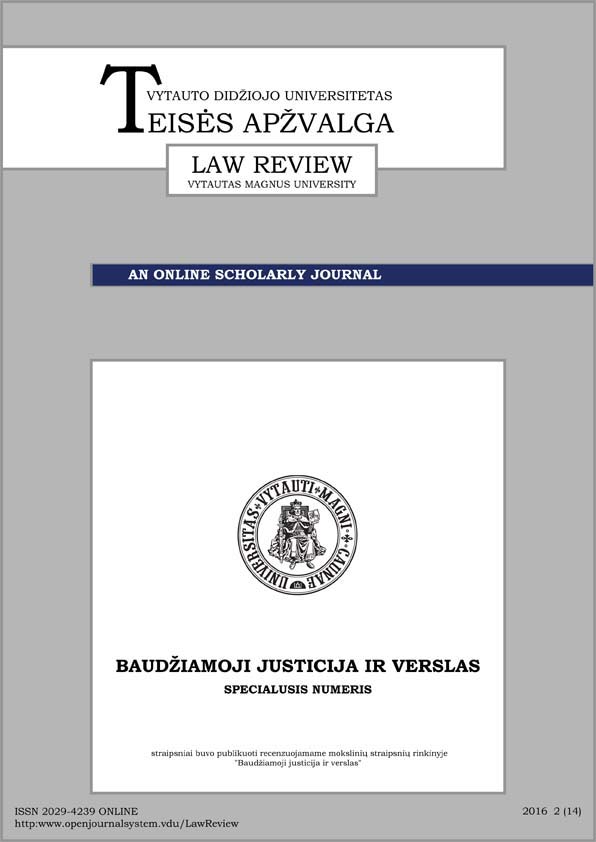Vagystę kvalifikuojančio požymio – organizuotos grupės – samprata teisės moksle ir teismų praktikoje, bei kai kurie kvalifikavimo ypatumai
Theft Aggravating Element – Organized Group – The Scientific Concept and Case Law, and Peculiarities of Qualification
Author(s): Andželika Vosyliūtė, Armanas AbramavičiusSubject(s): Law, Constitution, Jurisprudence, Criminal Law
Published by: Vytauto Didžiojo Universitetas
Keywords: Criminal law; Theft; Qualifying attributes; Criminal organization;Qualification;
Summary/Abstract: Straipsnyje nagrinėjamas Lietuvos Respublikos baudžiamojo kodekso 178 straipsnio (vagystė) 3 dalyje numatytas kvalifikuojamasis veikos požymis - organizuota grupė, pateikiama šio požymio samprata baudžiamosios teisės moksle ir teismų praktikoje, atskleidžiami jo inkriminavimo bei kvalifikavimo ypatumai. The article presents the legal evaluation of an organized group as one of the aggravating elements of the theft stipulated in Part 3 of Article 178 of the Criminal Code of Lithuania. The authors present the content of the “organized group”; discuss the issue of judicial problems relating to this especially aggravated theft. Finally, thorough discussion on the expediency of the organized group, defined by the Criminal law as especially aggravating one, is given. The authors indicate that in order to have an „Organized group“ as an element of aggravating theft it is necessary to establish that, by stealing the property, at least two persons agreed to do several thefts, under the paragraph 1 Article 178 of the Criminal Code, or agreed to make one of the above mentioned theft and any other minor crime, or agreed to make one theft provided for in paragraph 2 or 3 Article 178 of the Criminal Code, and each member of the group doing the theft, carried out a particular task or had a different role. The authors also concluded that the analysis of the practice of the courts (in which this element determines only individualisation of punishment) and the theory of the criminal law (after the definition of an organized group changed, it is difficult to substantiate legally a higher dangerousness of an organized group) has shown that this element was groundlessly established as a theft aggravating one; therefore, it shall be proposed to abolish it. On the basis of the analysis performed in the article, the authors propose to assess the element organized group in the general part of the Criminal Code not only by providing the definition of this element, but also by specifying its particular impact on the differentiation of criminal liability because this element is characteristic to both criminal actions against property and other criminal actions. Moreover, the authors indicate that having regard to the change in the concept of an organized group each member of the group is under the responsibility of actually performed role. So, an organizer, an instigator or an assistant act is classified with reference to paragraph 4, 5, 6 of Article 24 and Article 178 of the Criminal Code of Lithuania.
Journal: Teisės apžvalga
- Issue Year: 2016
- Issue No: 2(14)
- Page Range: 139-156
- Page Count: 18
- Language: Lithuanian

